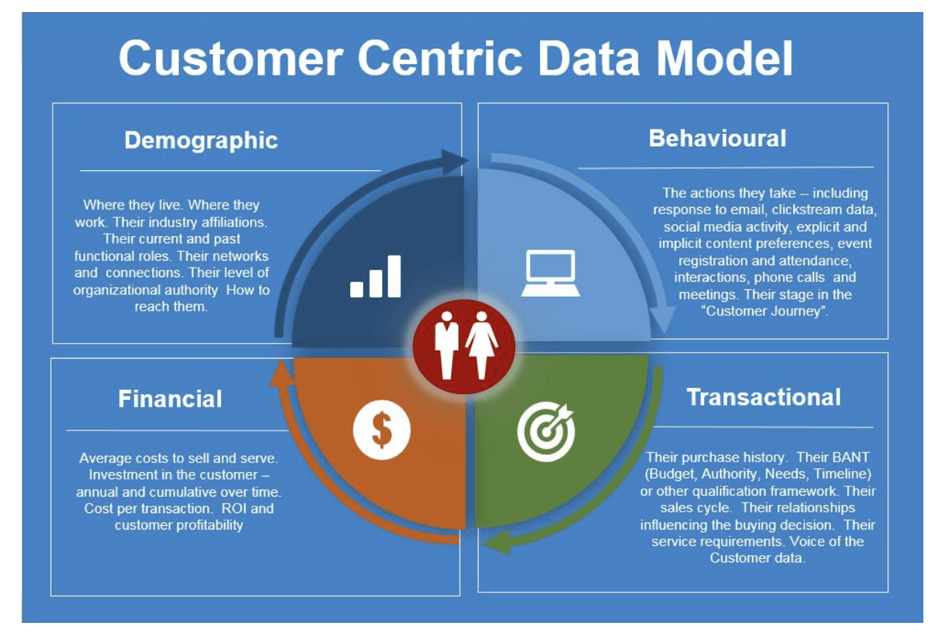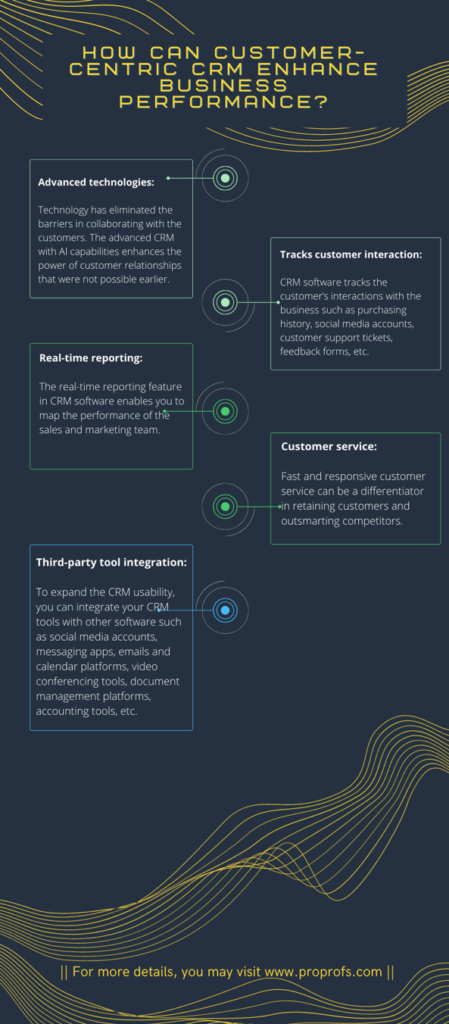Contents
Customer relationships have become the focal point for enterprises to thrive in a highly unsettled environment. With the right customer relationship strategy, brands can foster a sense of trust and emotional bonding with their loyal customers, which is critical for the organization’s success. Earlier, business enterprises have been focused on closing sales and increasing revenue. Customer interactions were limited to a few touchpoints such as phone calls, field visits, and in-store rep conversations.
Customer interaction on these levels does not do good to either customers or business enterprises. It was less effective in bringing customers close to the brand and committing them to a long-term partnership. But, the scenario is different today. Every organization has to reimagine their approach for customer experience and value proposition. There is an increased focus on being customer-centric.
The definition of customer relationship is fundamentally changing as business trends are evolving. It is not confined to typical after-sale services but transforming customer experience throughout the whole organization. Today, every business process is centralized around the customers and enhancing their experience. Whether it is a supply chain, manufacturing, project management, logistics, everything is planned to deliver a superior customer experience. Organizations adopt a data-driven approach and harness CRM software solutions to optimize their relationship with customers and keep pace with the modern world.
Customer-centric CRM is pivotal in decoding customer expectations and value enhancement strategy. For this reason, bringing in CX consultants to help you create the best CRM system can help enormously in tapping various customer touchpoints and boosting business profitability.
Why do Organizations Need Customer-Centric CRM?

- More accountable: Business organizations have become more accountable to their customer acquisition approach and want to know how efficient their marketing campaigns are, and the outcomes of the specific marketing activities. CRM software gives in-depth insights into customer acquisition activities and enables businesses to enhance their customer relationships and experience practice.
- Pareto principle: As per the Pareto principle, 80% of productivity comes from 20% of our activities. As business owners, you expect to yield higher profits with minimum investment or effort. By aligning customer relationship strategy with the business, you can reduce the efforts in customer acquisition and increase sales. CRM solution enables you to execute your customer relationship strategy from a single interface and optimize your profit.
- Designing new product: To stay competent in the market, you need to continuously improve the service or product. Lack of information often results in designing weak products and wastage of funds. CRM software gives information about customer expectations and assists in developing a product or business model that is sustainable.
- Keep pace in the digital age: The boom in online business has enveloped customers on a big scale and, along with it, leaves a trail of valuable data. But the data produced by online platforms are massive, and manually segregating them is impossible. CRM software can allow you to process high volume data and segregate those data on various parameters such as geographic location, product preferences, preferred communication channels, etc.
- Making faster decisions: Making the right decision on a customer engagement plan is essential for business expansion. CRM software provides a 360-degree view of customers’ every action and helps you design your customer engagement plan. Besides that, you can see how your sales and marketing team are performing and based on that, you can plan your future strategies.
- Customer lifetime value: Enhancing customer lifetime value is the priority of every organization. With the CRM tool, you can run various promotional offers and loyalty programs to improve customer lifetime value.
How Can Customer-Centric CRM Enhance Business Performance?

- Advanced technologies: Technology has eliminated the barriers in collaborating with the customers. The advanced CRM with AI capabilities enhances the power of customer relationships that were not possible earlier. Businesses use AI to identify sales opportunities, enhance customer service, engage customers, etc. AI algorithms can be used to generate predictive scores based on their interaction with the business. These scores can be helpful to predict various customers’ attributes such as satisfaction level, loyalty, revenue, and costs to render service. On top of that, the advanced CRM tools also trigger notifications and alerts for the action you should take to enhance the personalized experience.
- Tracks customer interaction: CRM software tracks the customer’s interactions with the business such as purchasing history, social media accounts, customer support tickets, feedback forms, etc. It helps to sneak into customers’ minds and push marketing campaigns that lead toward high conversion rates. With CRM software you can continuously stay in contact with your loyal customers and increase sales by upselling or cross-selling the product.
- Real-time reporting: The real-time reporting feature in CRM software enables you to map the performance of the sales and marketing team. You can gauge on various sales metrics such as leads converted, sales generated, amount of time taken to close the deal, etc.
- Customer service: Fast and responsive customer service can be a differentiator in retaining customers and outsmarting competitors. Through CRM tools, you can handle more customer complaints and solve them rapidly. You can also segment the complaints based on the severity and manage them smartly.
- Customization: Different organizations have different needs, and with the customization option, organizations can build a CRM solution that suits their business. By carefully considering the expectations from CRM solutions, you can customize the features and manage customers more efficiently.
- Third-party tool integration: To expand the CRM usability, you can integrate your CRM tools with other software such as social media accounts, messaging apps, emails and calendar platforms, video conferencing tools, document management platforms, accounting tools, etc.
Conclusion
Customer demands keep fluctuating. There are various factors that influence their behavior, such as product costs, quality, customer service, competitors’ marketing campaigns, etc. In such a volatile situation, keeping customers committed to your product or brand is a challenging task. In order to increase your customer base, you need to deliver higher competency, exceptional products, personalized experience, and customer lifetime value. Even a minor inadequacy in meeting any of these attributes could result in business loss. Many companies still focus on efficient customer service rather than customer engagement across various touchpoints.
This generic approach is not feasible in today’s market, and you need to nurture customer relationships for long-term business growth. On the cusp of technology evolution, CRM solutions can support you in your plan for customer retention and unlock the full potential of the customer relationship. It enables you to take complete control of the customer life-cycle and respond better to the inconsistent customers’ demands.



